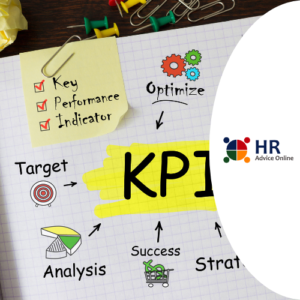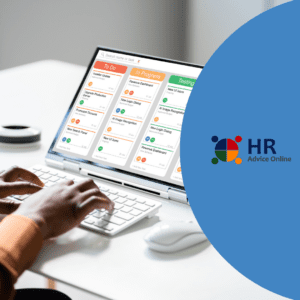What are KPI’s
Key Performance Indicators (KPI’s) are a quantifiable measurement that reflect the critical success factors of a business and provide a metric that reflects how well employees, and the business overall, are achieving their stated goals and objectives.
Why have KPI’s?
KPI’s provide a valuable means for businesses to monitor and track actual performance or progress towards a stated business goal or strategic objective. KPI’s can be developed to capture financial or non-financial measures, but either way they need to have a direct and measurable impact on the business goals.
KPI’s (which can also be referred to as Key Success Indicators), help an organisation:
· define and measure progress toward organisational goals,
· provide a valuable tool for communicating the business strategy and turning this strategy into action.
· align each employees’ roles and activities with the overall business strategy to ensure that the tasks being performed by each employee are directly supporting the overall goals the business. This further helps employees to understand how their role fits into the bigger picture.
· provide a quick and concise way of reviewing actual performance or progress towards specific goals or objectives, and
· assist management through providing reliable and visible measures that support prompt decision making.
KPI’s provide a means for supporting the communication of the business strategy to each employee and helps secure their commitment towards implementation. The result of implementing KPI’s is that employees will be doing what they should be doing and establish metrics for measuring performance that are directly tied into the success of the business.
It is essential that all employees, and their respective business units, are working towards the achievement of core strategic goals and objectives. The ability for your employees to do this effectively depends largely on how well they understand the responsibilities and tasks that are expected from them in their position.
Through developing clear measurable goals that are directly linked to the specific targets required to be met from each position, KPI’s set out the performance standards that each employee is expected to achieve. KPI’s further enable an employee’s position description to be used as an assessment tool to measure employee performance against the stated position requirements as part of the annualised performance review process.
Who should prepare the KPI’s for a position?
For new positions, KPI’s would normally be prepared by the supervisor and be approved by the relevant manager (one level above the direct manager) in line with the business goals and strategy.
For existing roles, the position’s KPI’s should be reviewed annually (or earlier if circumstances determine that a change is warranted). Where there is an incumbent in the position, they should contribute to, and be consulted with, during the development of the KPI’s to ensure that they remain relevant and will continue to motivate and challenge employees to meet their targets.
Where KPI’s are imposed on employees without genuine consultation, this may result in employee compliance, but are likely to reduce an employee’s motivation to strive to meet the set goals. Furthermore, engaging an employee in the process of reviewing and developing their KPI’s will work to ensure that they know what they need to achieve and what they may need to do differently to achieve targets.
Frequency of review
KPI’s are likely to change over the course of your business’s lifecycle and as individual positions develop. To ensure KPI’s remain relevant and reflective of the business strategy, they should be reviewed annually as a minimum. In most instances, this review will occur as part of an organisation’s annual performance review process.
KPI reviews will help identify any potential areas of reduced productivity before the problems become critical, for example by identifying where more resources are needed or where additional training is required for struggling employees.
How do you develop KPI’s?
To establish a set of KPI’s for a particular position, it is critical to understand what the desired outcomes are from both the position functions, and from the business unit as a whole. This understanding will then ensure that targets can be set that will drive the behaviour of employees carrying out these functions to align their work with company goals.
An ideal situation is where KPI’s cascade down from level to level in the business. This helps employees to work in such a way that their activities are aligned with corporate strategy. To do this, prior to developing and implementing KPI’s, the following steps need be taken:
· Review the business strategy and objectives.
· Identify the key business processes and how they affect the strategy.
· Identify the linkages between each business unit and how each one impacts on the overall strategy. This step will help to ensure that individual business units and positions have KPI’s that are focused on the same direction and do not have counter productive KPI’s.
· Develop draft KPI’s that reflect the strategy and express requirements in measurable behavioural terms.
· Consult with stakeholders to ensure that each KPI is aligned with the organisational KPI’s.
KPI’s can cover many areas and there are several measures that could be set for each role. When developing the KPI’s for a specific position, you will need to map out between 5 – 10 critical factors that need to be addressed to ensure that a role is performed effectively. This list can then be used to then develop 2 -3 KPI’s for the role.
What can be measured as a KPI?
Anything that can be measured can become a KPI, however not all measures will necessarily be of value to your business. There is no one size fits all approach for KPI’s as they can between individual businesses and industries.
To identify the right KPI’s for your business it is important to be clear about the objectives and strategic directions. Pick only the key indicators that are relevant and meaningful for your business, and that can be used by everyone in the business to inform decision-making.
Examples of what can be measured may include:

It is important that the principles of SMART (Specific, Measurable, Attainable, Relevant, Time bound) underpin the development of KPI’s.
If you require assistance with how to develop KPI’s for your team members, or if you require HR Advice, please contact the team at HR Advice Online on 1300 720 004. HR Advice Online members can also access out range of online resources, which include KPI forms and guidelines.
Information in HR Advice Online guides and blog posts is meant purely for educational discussion of human resources issues. It contains only general information about human resources matters and due to factors such as government legislation changes, may not be up-to-date at the time of reading. It is not legal advice and should not be treated as such.




